

Featured Homes


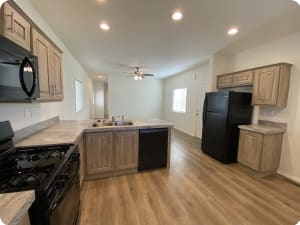
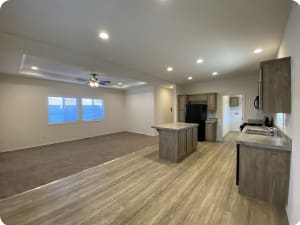


As low as 3.9%! Call us for more information: (916) 461-8004
As low as 3.9%! Call: (916) 461-8004
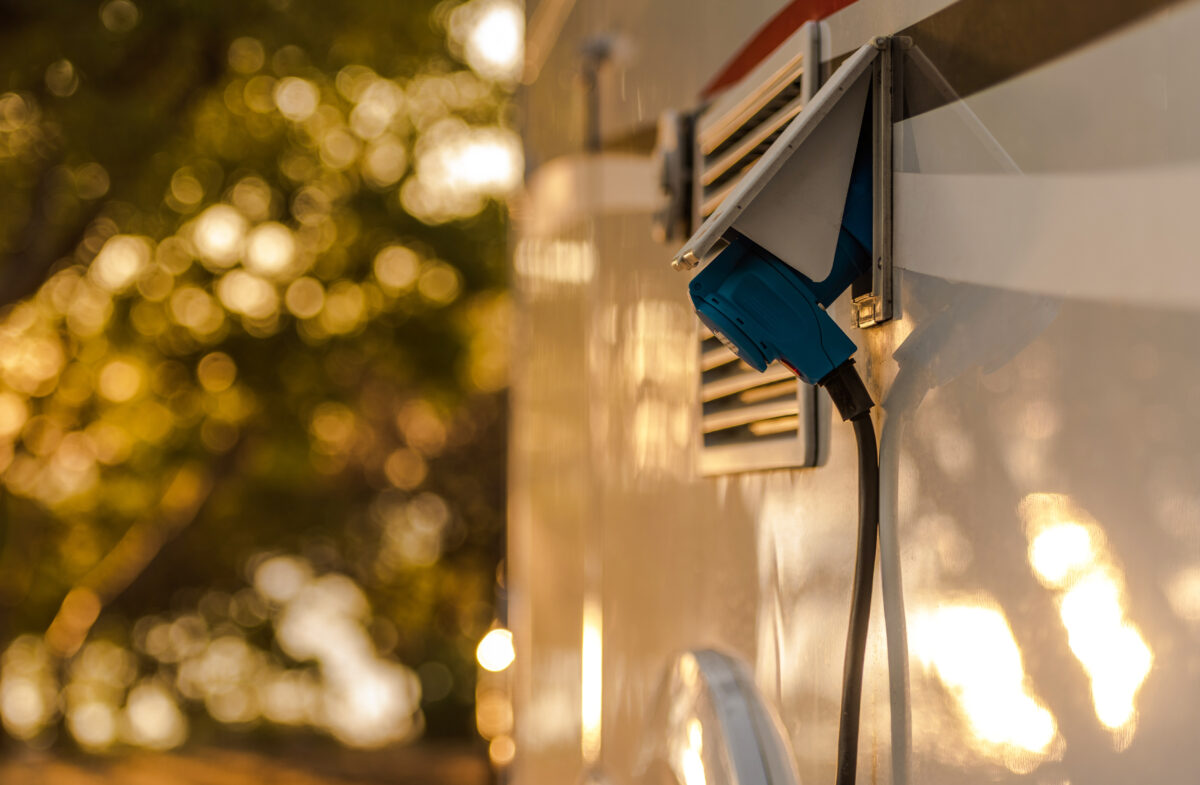

When you arrive at an RV site within an RV park, you’ll likely want to connect your RV to power first thing – after parking, leveling, and stabilizing, of course. This will allow your appliances like your refrigerator and air conditioner to cool while you get the rest of your RV site set up.
First, you’ll need to know a bit about your RV’s electrical system. The electrical hookup for your RV is referred to as shore power, which is any power source provided by the RV park or campground. Read this article on AC vs DC Power Supply and Your RV’s Electrical System written by an RV expert at Camping World for a deeper understanding of how your trailer or RV electrical system works.
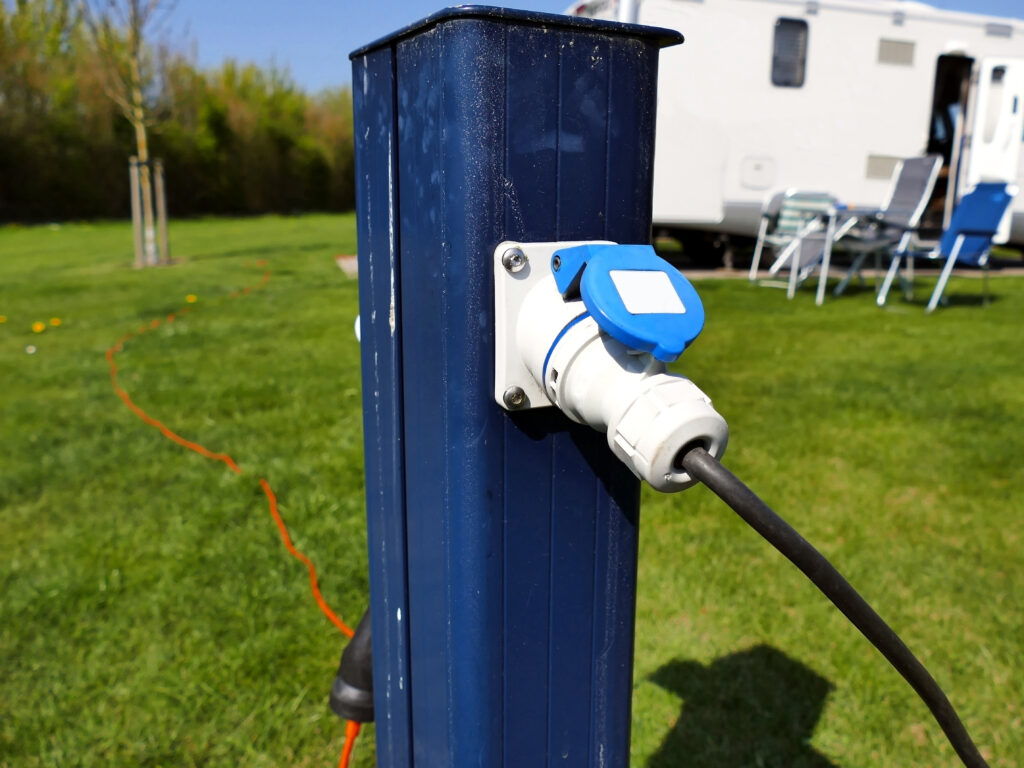
30-Amp vs. 50-Amp Shore Power Connection
Next, determine whether you have a 30-amp or 50-amp shore power connection. The majority of RVs require a 30-amp or 50-amp connection. To determine which electrical service your RV needs, look on the shore power cord at the number of prongs; 30-amp plugs have three prongs, and 50-amp plugs have four prongs.
It is possible to connect a 50-amp RV into a 30-amp plug or a 30-amp RV into a 110 VAC outlet, but you’ll need to be strategic and limit your power usage to ensure you don’t trip a breaker or an outlet, or, at worst, damage the electrical system in your RV.
RV adapters are available, but you won’t get the full amperage your RV is intended to run on if you connect to a lower-rated power source. Check with the RV park or trailer park first to determine what type of shore power connection they offer.
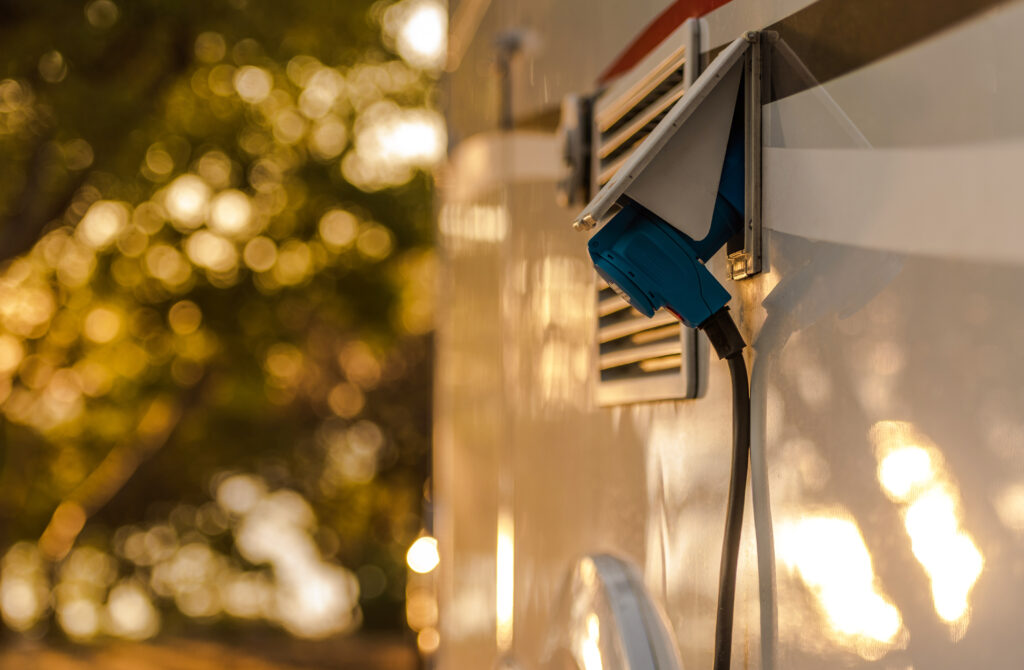
How to Hook Up Your RV to Electricity at an RV Site
Now comes the fun part: connecting your RV to the power source at your site. There are a few steps we mentioned earlier you’ll want to tick off your checklist prior to connecting your RV to electricity (steps 1-3):
For more tips on connecting your RV to electrical service and for steps on how to disconnect electricity from your RV, read this article by RVShare.
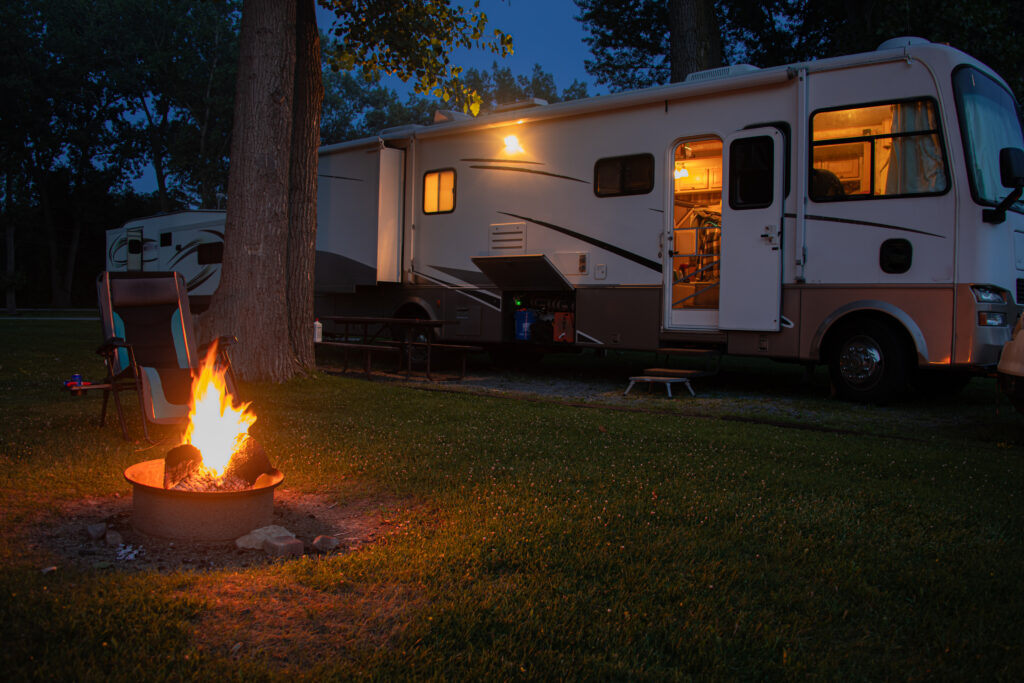
RV Sites for Rent With 30-Amp and 50-Amp Services
If you are looking for your next RV site – whether you’ll be calling it home for the long haul, using it as a launch pad for adventure, or posting up in a location close to new work – check out our available RV sites for rent here. Our RV Parks offer long-term stays and some also offer short-term stays. Monte Christo Communities operates RV parks on the West Coast of the U.S.
Notable RV Parks in the West with Available RV Sites for Rent*
Pepper Ridge RV Park in Reno, NV
Driftwood RV Park in Brookings, OR
Parkway Lakes RV Park in Morgan Hill, CA
Vallejo MHC and RV Park in Vallejo, CA
Pleasant Valley MHC and RV Park in Oroville, CA
*At the time of publishing this article, the RV parks listed had RV spaces available for rent. RV site availability is subject to change.









We think the best RV road trips are ones that you can take at a leisurely pace. And by leisurely, we mean long-term RV reservations – 1 month to several months – at scenic RV parks you can use as a jumping off point for further adventure, relaxation, and exploration. One of the top west coast RV road trips we recommend is the Pacific Coast Scenic Byway.
The Pacific Coast Scenic Byway stretches border to border along Oregon’s breathtaking coast.
This stretch of highway in Oregon is open to the public, giving it the nickname “The People’s Coast.” This is a popular road trip route for ample reasons, especially if you take it at a laid-back pace in your RV. RVs afford you the ability to stay in short-term and long-term RV parks along the coast with no pressure on your itinerary, or, should we say, “What itinerary?”
Scenic Overlooks, Rocky Tide Pools, Sandy Beaches, Coastal Communities and More
From Astoria to Newport to Coos Bay to Brookings, you’ll discover a bounty of natural wonders and coastal communities brimming with character. Starting in Astoria in northern Oregon will ensure you and your RV are cruising on the coast-side of the road, affording you prime views.
Oregon’s Pacific coastline stretches for 363 miles, which makes drive time about 10-12 hours for the full route. But of course, we hope you’ll make many stops and stays along the way to fully immerse your senses in all the Pacific Coast has to offer. Who knows, maybe you’ll want to stay for the long haul?
Recommended RV Road Trip Itinerary for the Pacific Coast Scenic Byway
Days 1-2: Astoria to Garibaldi (55.5 mi)
Kick off your RV road trip in Astoria where the mighty Columbia River meets the Pacific.
Where to stay: Nehalem Bay State Park
Sites and Stops Along the Way:
Columbia River Maritime Museum – Astoria’s intertwined heritage with the sea
Fort Stevens State Park – Where the Columbia River meets the Pacific
Seaside, OR – 1920s-era promenade and boardwalk games
Cannon Beach – Galleries, boutiques and views of 235-foot Haystack Rock offshore
Ecola State Park – Sandy coves, forested trails and the cape of Tillamook Head
Nehalem Bay – Forested bike path with views of the bay
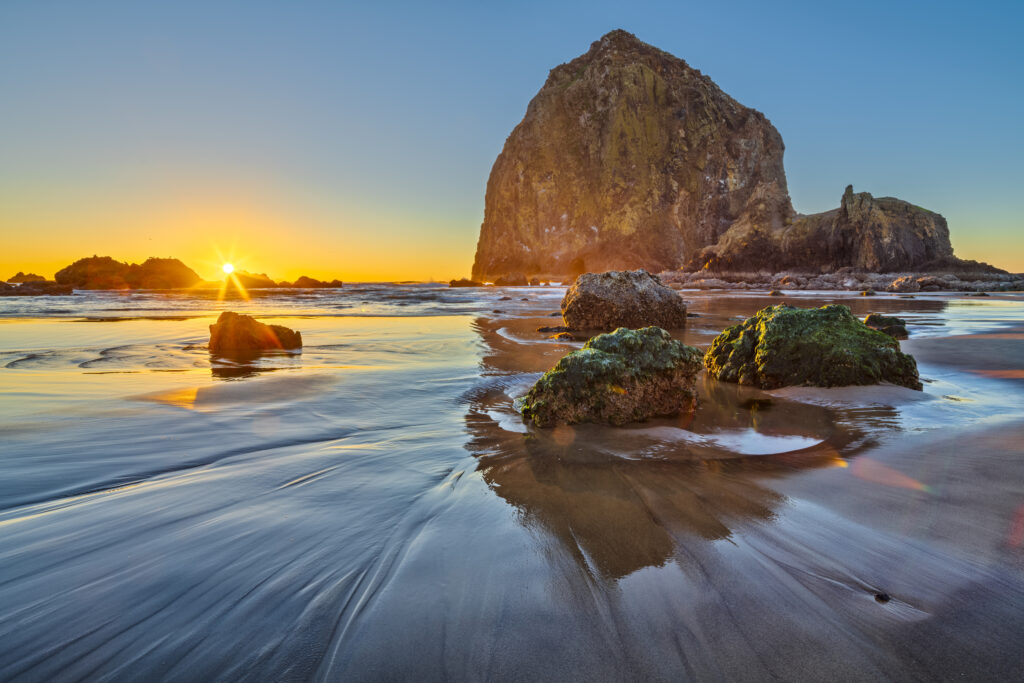
Days 2-3: Garibaldi to Newport (78.3 mi)
With this stretch of the road trip, take some extra time to detour inland along the Trees to Sea Scenic Byway to the Cape Meares Lighthouse.
Where to stay:
Pacific Shores Motorcoach Resort in Newport, OR
Port of Newport RV Park and Marina in Newport, OR
Sites and Stops Along the Way:
Garibaldi – A hub for fishing and kayaking
Tillamook – Sample cheeses at the Tillamook Creamery
Trees to Sea Scenic Byway to the Cape Meares Lighthouse
Three Capes Scenic Loop to Cape Lookout State Park
Pacific City – Little beach town touting the massive sand dune of Cape Kiwanda
Cascade Head Preserve – Trails through old-growth forests
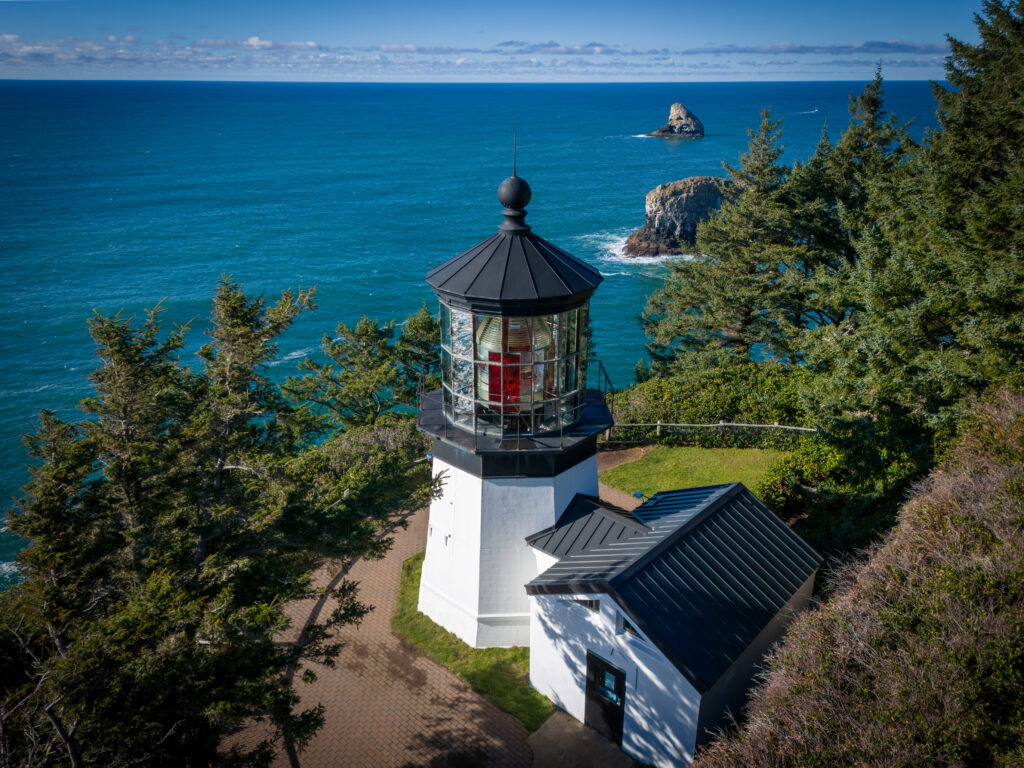
Days 3-5: Newport to Coos Bay (97.9 mi)
Consider extending your stay in Newport to spend an afternoon at the Oregon Coast Aquarium and take in the lighthouse and abundant natural beauty found in Yaquina Head Outstanding Natural Area.
Where to stay: Sun Outdoors RV Park in Coos Bay, OR
Sites and Stops Along the Way:
Newport – Marine life and science at the Oregon Coast Aquarium
Yaquina Head Outstanding Natural Area – Marine gardens and Oregon’s tallest lighthouse
Cape Perpetua Scenic Area – 800 feet high and trails lead through old-growth forest
Heceta Head Lighthouse – Oregon’s brightest beacon
Sea Lion Caves – Ride the elevator down 208 ft to an observation area in a large natural cavern to see Steller sea lions and more wildlife
Florence – Fishing boats and historic buildings filled with shops
Oregon Dunes National Recreation Area – Dune buggy tours, sandboarding, ATVing
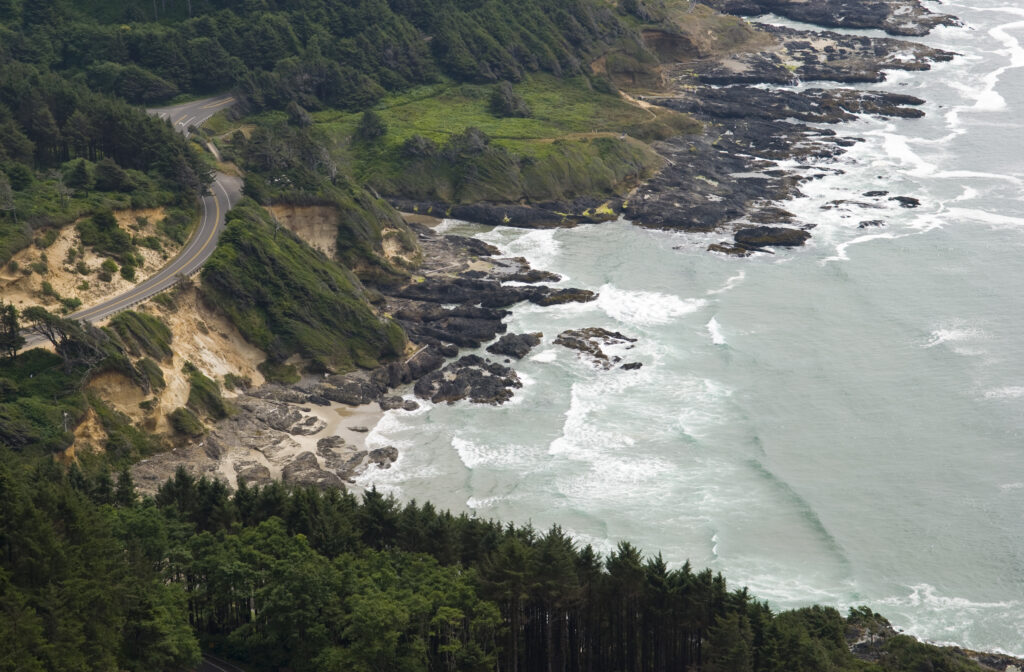
Days 5, 6, 7 (and beyond!): Coos Bay to Brookings (107 mi)
Where to stay:
Rogue Pacific RV Park and Cottages in Gold Beach, OR (details below)
Driftwood RV Park in Harbor/Brookings, OR (details below)
Sites and Stops Along the Way:
Coos Bay – Recreational fishing, crabbing, clamming
Bandon – World class golf, art, and sandy beaches
Port Orford – Scenic fishing harbor and the start of the Wild Rivers Coast Scenic Bikeway
Gold Beach (stay a while!) – Where the Rogue River, a Wild and Scenic River known for its rafting and fishing, meets the Pacific
Samuel H. Boardman State Scenic Corridor – Overlooks, hiking trails, beach access
Harbor and Brookings (stay a while!) – Known for its temperate “banana belt” climate and largest stand of coastal redwoods in the state. These seaside towns are sure to charm!
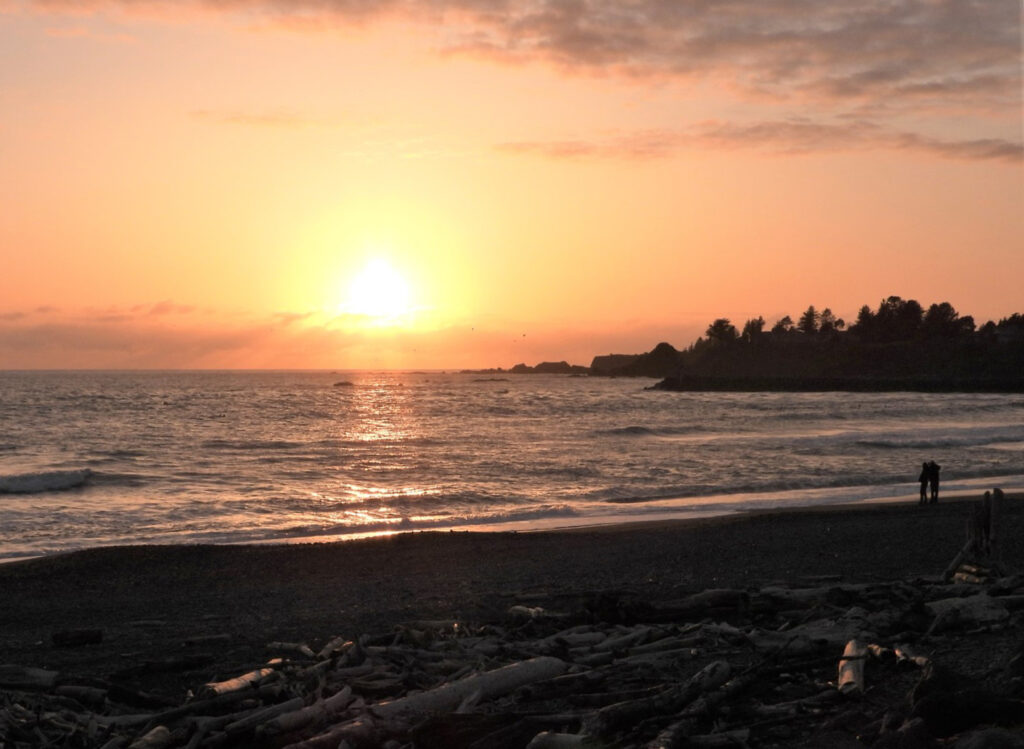
Where to Stay (for more than a day or two) on Oregon’s Southwest Coast
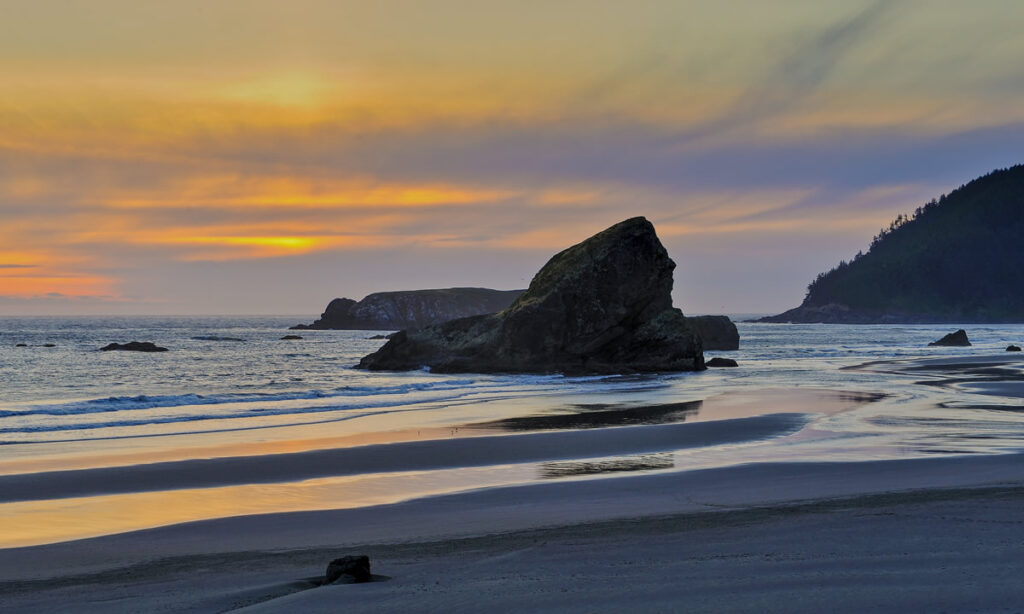
Rogue Pacific RV Park and Cottages in Gold Beach, OR
What this RV Park Offers:
Make an RV Site Reservation at Rogue Pacific RV Park
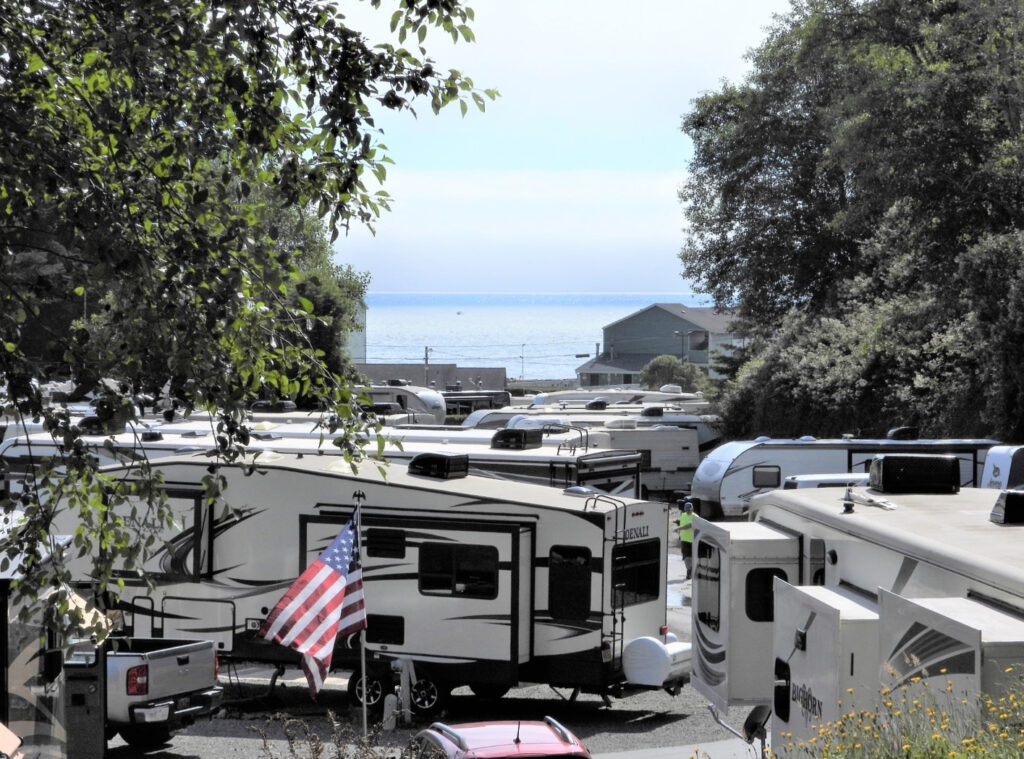
Driftwood RV Park in Harbor/Brookings, OR
What this RV Park Offers:
Make an RV Site Reservation at Driftwood RV Park
Bonus for RV Lifers
For those of you looking to settle into a new place for the long haul, spending a month or more in a handful of these coastal towns to “test” them out affords you a good sense of what it would be like to live there. By spending more than a few nights in an RV park, you’ll get to know local places, people, climate, and more to see if it’s a good fit for you.
Happy travels!
Looking to retire in an RV Park? Check out this article: “5 Reasons to Retire to a Long-term RV Park”

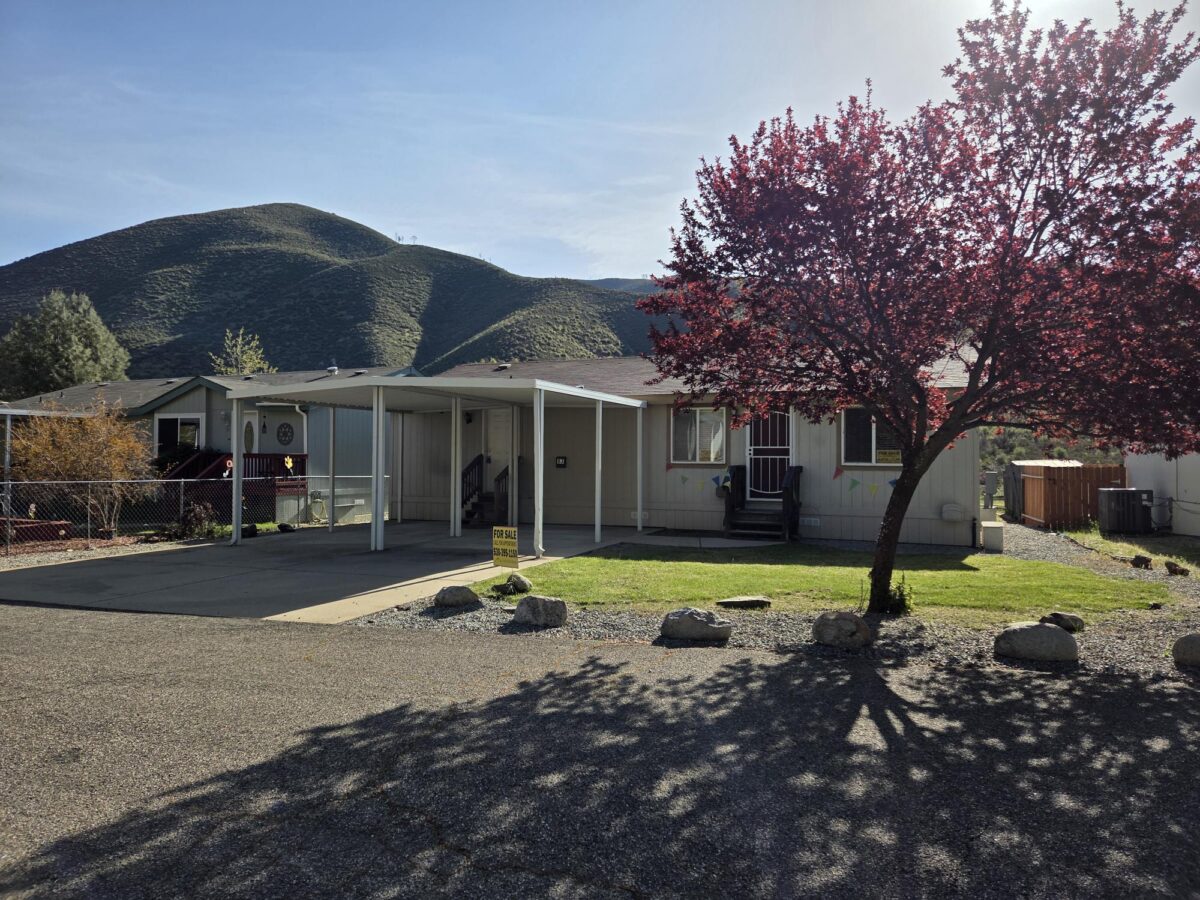
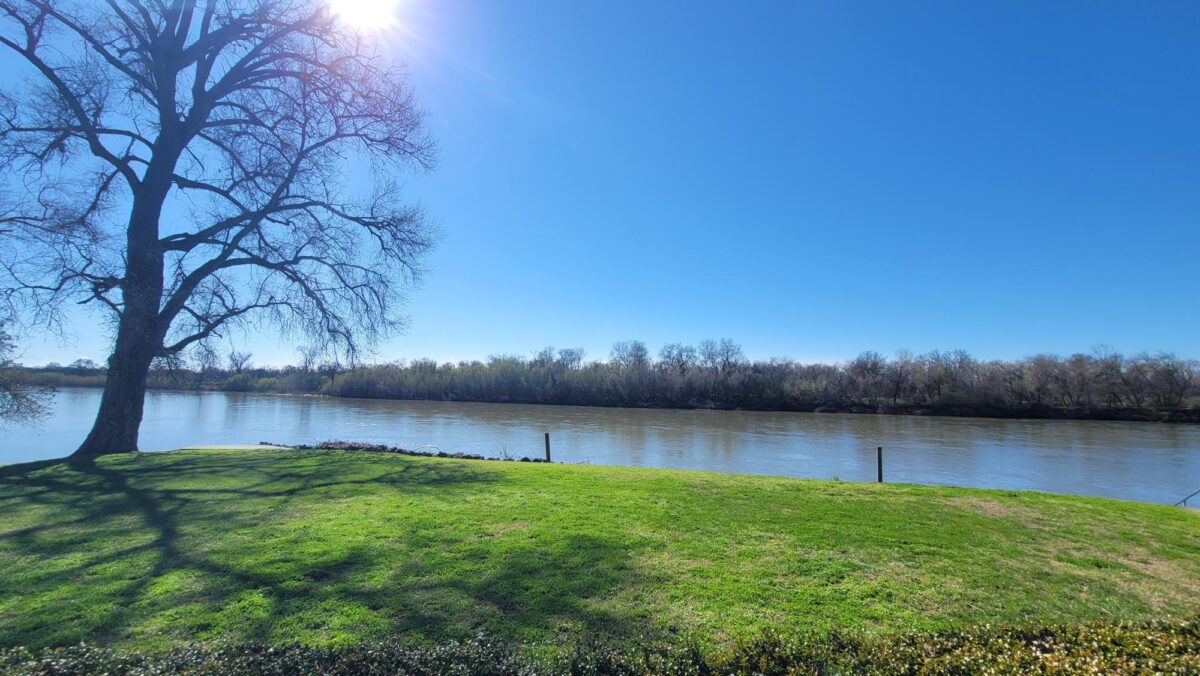


After decades of clocking into a shift, putting in a 9-to-5, running a business, or following the winding path of your career, most people look ahead to the calm and ease of one thing—The Golden Years. The average American hopes to retire by the age 62, with each generation carrying their own idea of the perfect way to spend their time in their new work-free lifestyle. Boomers look forward to spending more time with family while Gen Xers are mostly excited for traveling around the US.
Despite visions of care-free days and tossing hectic schedules to the wind, the thought of retirement does carry more serious concerns for some. One in four Americans worry about feeling lonesome or bored in retirement, and almost one-third worry about dragging too much debt with them (notably with a mortgage).
Thankfully, there’s a solution that helps alleviate the stress of a mortgage while empowering retirees to live the life they dream about—RV retirement. It’s a chance to carve new paths, downsize your home, and meet new friends in long-term RV communities. But how do you know if settling into the RV lifestyle is right for you in your next chapter? Check out the top five reasons long-term RV retirement is like living the dream.
1. Save Money and Fit Any Budget
The way we think about money and retirement has been shifting for a while. Baby Boomers, for instance, typically head into retirement owning their homes, and 65% count on social security and pensions to fund retirement. Just over half of millennials, on the other hand, are counting on a 401(k) and personal savings to fuel their Golden Years, with more expected to bring a mortgage bill into retirement than their Boomer counterparts.
No matter the strategy for saving up, there are always going to be questions like “How much money am I going to need?” and “How long will I need to make that money last?” running through the minds of retirees-to-be.
Full-time RV retirement could be just the money-saving solution you’re looking for no matter your budget. Without the expenses of home ownership, especially big-dollar maintenance as the decades roll by in retirement, you could find yourself living freely without worrying about financing the next new roof or foundation repair. Plus, there are many ways to stay within even modest budgets.
Some cost-conscious tips include:
2. Sell Your Home and Reap the Investment
If you’re on the cusp of retirement, now is the best time to sell your home and reap the investment. According to the Home Price Index, the average home went up 18% in price from October 2020 to October 2021. That’s a record-setting increase and the biggest the market has seen in 45 years.
This is incredible news for homeowners who may now be able to reap more return for their home than ever expected. A move like this could eliminate your debt as you head into retirement, release the burden of a mortgage, or add some extra change to your piggy bank.
3. Live Wherever the Road Takes You
The most desired destination for retirees in the US is their own backyard. Forty-percent of retirees looking forward to traveling want to spend that time traversing the country, and 66.5% crave a more rural residence. Both the itch to travel and to experience rural America can be scratched with RV retirement.
In an RV, you’re never bound to one destination, one community, or one predictable life. Instead, set your sights on any state, park, or coastline and just go. Enjoy the solitude of a rural setting in your day-to-day life all while knowing you’re just a drive away from the bustle of a city if that’s what you want. Plus, every new RV community is a new opportunity to meet people, make friends, and enjoy camaraderie on the road. The life of an RV retiree is seldom boring or lonely (but if that’s what you want, just head off to any isolated park that’s just you and the towering pines).
4. Balance the Cozy Indoors with the Great Outdoors
Full-time RV living is the ultimate balance of indoor comfort with outdoor adventure. Unlike living in a stationary suburban home, the freedom of an RV empowers you to continuously turn the dial to fit your needs. If more amenities or urban comforts are what you want, explore the nearest metro. But if the mountains are calling, well, you have the freedom to answer.
The amenities of modern RV make it possible to enjoy lounging on the couch, cozying up with a book on your queen-sized bed, or working on your passion project from your designated office setup. Once you’re ready to get a breath of fresh air, simply step out your front door to the crashing ocean waves, awe-inspiring redwoods, or wide-open prairies. Change your scenery as often as you like. It’s the perfect way to tailor your indoor and outdoor living.
5. Host Family and Friends
If you’re most looking forward to spending time with family in retirement, the RV is the perfect vessel. Host reunions in a new place every year or simply drive yourself to your loved ones. Never miss another milestone or celebration again. With the power of mobility in your hands, you can control your schedule and travel without stressing about caring for your home, boarding your pets, hotel costs, and more while you’re away.
And when you’re staying at scenic destinations or just minutes from national parks and oceans, your schedule will be stacked with family and friends wanting to visit you. RV retirement happens anywhere you want, which means the opportunity to make more new memories with your kids, grandkids, and friends than you ever thought possible.
5 Reasons to Pick RV Retirement, Unlimited Adventures Ahead
Your retirement should be a chapter of life that’s just as thrilling as every one before it. Despite the feelings of stress surrounding financial planning, budgeting, and restrictions in retirement, there are ways to live a life free from all of those anxieties. With full-time RV retirement, your journey is up to you instead of being bound to one home, city, or lifestyle.
While these are just five reasons RV retirement is an exciting option, life on the road is truly full of endless possibilities, experiences, and environments waiting for you at any stage of life. If you’re retired or still weighing your options before taking the next step, remember that your path isn’t set in stone. Let the open road help you decide.



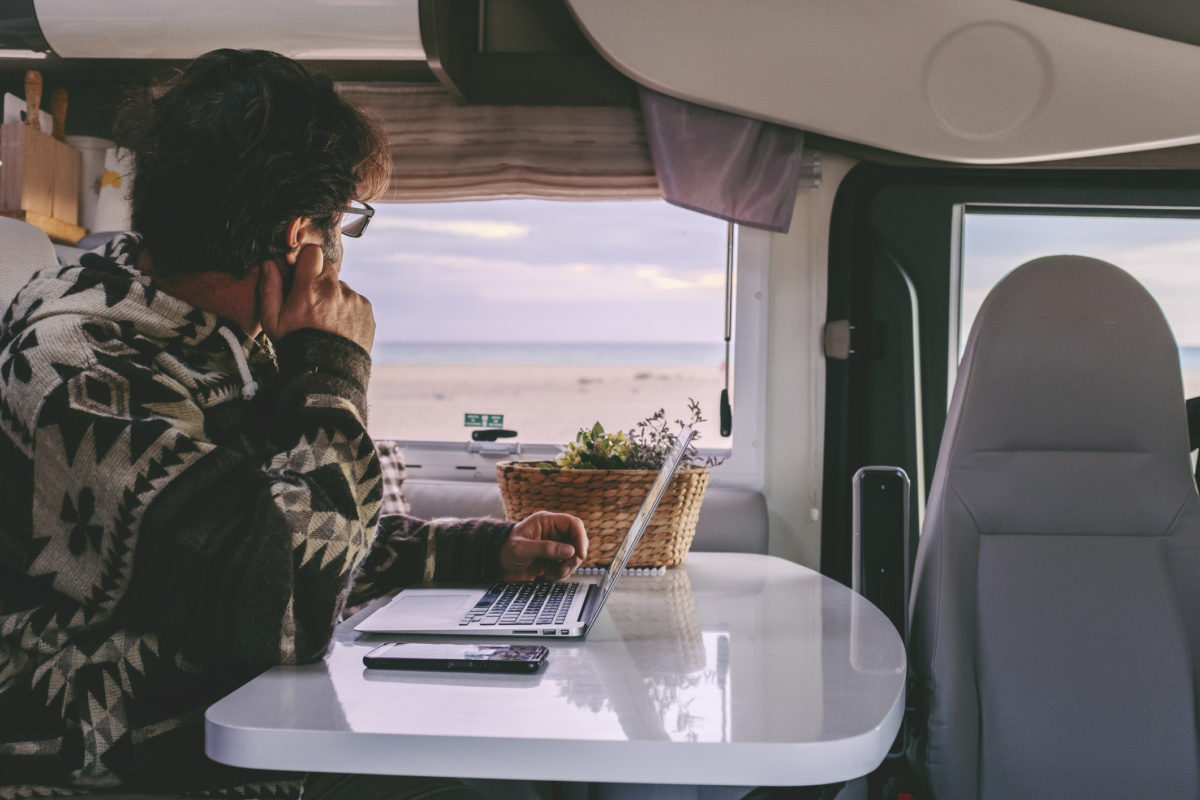

When you imagine the American Dream, it’s not unusual for images of lush green lawns, white picket fences, and two-story Tudors spread across a sprawling suburb to flash through your mind. While that vision was the dream in the1950s, it’s time to fast-forward and realize the new dream taking modern Americans by storm.
One particular housing trend today is long-term RV living and all the luxuries inherent to life on the road. Recreational vehicles, or RVs, aren’t just wooing people because of their mobility, but it’s becoming more apparent that RVs are perfect for climbing career ladders remotely. Instead of “working from home,” it’s not unusual to see more people “working from RV” on the road.
What are the factors fueling this new remote working trend? What are the impacts WFRV could have on your life? Learn about the benefits of working while RVing and get inspired to make the next big move in your life.
Working Remotely from Your RV: The Big Idea Behind This Housing Trend
Thrive in your career, work from the comfort of home, and explore the US? This dream scenario seems like a no-brainer for most, and it’s becoming a reality as modern Americans explore housing options that fit their life and goals.
Remote work had been steadily growing in popularity for years before becoming the “new normal” due to the coronavirus pandemic. Modern technology made working from home a simple and accessible possibility while stay-at-home safety measures rendered it a necessity.
Remote work is here to stay and by 2025, it’s forecasted that more than 36 million Americans will be taking advantage of it—an 87% increase from pre-pandemic levels. With this newfound ability to work from anywhere at anytime, it leaves many people considering long-term RV living as a new and attainable possibility.
After all, RV life empowers people to explore new corners of the nation, customize their lifestyle and create the experiences they crave, and save more money than if they owned a more traditional home.
Long-term RVing Is an Opportunity to Save Money
While the coronavirus pandemic boosted work-from-home rates, it also caused a jump in something else—the cost to buy a home. Fewer homes were available for sale in 2020 just as a wave of millennials reached prime home-buying age, which created a hyper-competitive market across the US.
This perfect storm of remote work and a housing shortage pushed people to reconsider where they live. It’s simply no longer a requirement to pay exorbitant prices for homes in a big city in order to have access to popular or high-paying careers. In lieu of going house poor, there’s another option: long-term RVing.
Living in an RV gives people the perfect opportunity to pick a home that fits their lifestyle, goals, and adventures ahead. In January 2021, the typical US home had a price tag of $269,039. That’s up nearly 10% from January 2020 (and double the median home price in 1999). The price of buying a home is only getting steeper, but the price of purchasing a reliable RV is incredibly flexible and can be adapted to the needs of the individual buyer.
Similar to the rising appeal of tiny home living, long-term RVing inherently means also saving money on furniture, food, utilities, and beyond. (For instance, you’re much less likely to invest in that massive collection of porcelain dolls when you’re living in an RV.) Many full-time RVers report saving thousands per year compared with living in that stuck-in-one-place Tudor.
This promise for saving becomes even more real when you consider the costs of many metropolitan areas. For example, landing your dream job in Silicon Valley isn’t a mandatory sentence of jaw-dropping rent prices. Instead, work remotely from your RV in Fresno while fully realizing your career and savings goals.
Long-term RV Living Is Efficient and Adventurous
When selecting your new home-on-the-go, you have the freedom to tailor the space entirely. Keep your layout simple with a cozy studio-style RV, or opt for amenities like pop-outs or fold-out porches that create dream office spaces during your workday. Or stay curled up with your laptop, favorite coffee mug, and stylish ZOOM background as long as your heart desires. No matter where you choose to work, one fact remains: Making the perfect space to work from in your RV adds efficiency to your life in ways you might not have expected.
Wherever you’re most productive in your RV—whether that’s sitting at a desk or taking in the breathtaking views wherever you’re currently parked—your office is always just steps away. Eliminating an hour (or more) of commuting to and from a dreary office building means you get that time back in your day to do whatever you want. Have more time for new hobbies, meeting neighbors, side hustles, or exploring the excitement of your current homebase.
Investing in a home in a suburb ties you to one location, schedule, and experience. The culmination of remote work and RV living blows open those boundaries and makes seemingly anything possible.
Live the Life You’ve Dreamed of When Working from an RV
Without the confines of rigid schedules, commutes, working environments, and brick-and-mortar homes, your life becomes any adventure you choose. Dodge the pitfalls of being financially tied to an expensive home in an unpredictable market, and start customizing your day-to-day.
The freedom of RV living and working remotely means no experience is off limits. Spend your time settling into your pick of hundreds of RV parks and communities of manufactured homes across the US. Live amongst redwoods, oversee mountainsides, or listen to the lull of ocean waves all while answering emails and completing career-changing projects. All you need is a place to park, an internet connection, and a sense to live life to its fullest wherever you land.
The New American Dream Has Arrived
The suburbs will always be around for those eyeing a more traditional home-owning experience. But for those looking to take advantage of today’s remote-first workplaces and seeking an opportunity to own a home without going broke, a new American dream is catching on.
There’s never been a better time to live and work outside the box. Join the RV revolution and get ahead of the trend today. What are you waiting for?
Work from Anywhere. Experience Everything.
Find your next landing spot with Monte Christo Communities.


